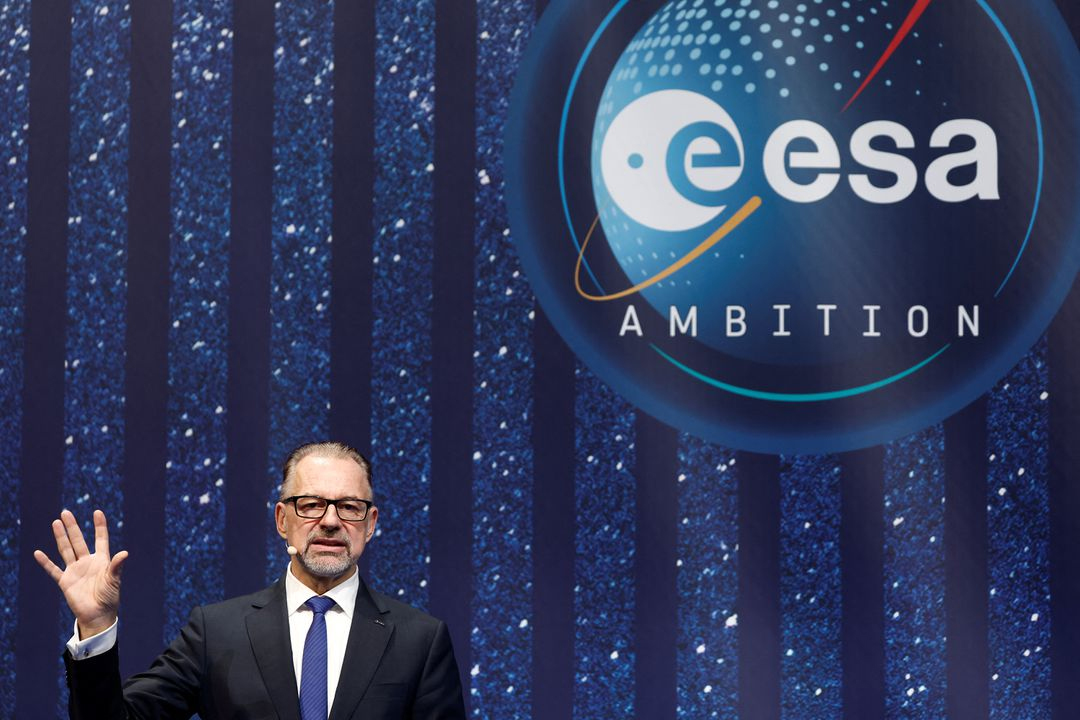- City Fajr Shuruq Duhr Asr Magrib Isha
- Dubai 05:44 07:02 12:29 15:27 17:50 19:08

Europe is being warned not to "miss the train" on the emerging space economy as more than 20 countries gather in Spain, expected to focus on funding for the delayed Ariane 6 rocket as well as climate change and a possible new role in exploration.
The 22-nation European Space Agency (ESA) is holding ministerial talks in Seville on Monday followed by a joint session with the European Union on competitiveness in space on Tuesday, dominated by the rapid growth of Elon Musk's U.S.-based rival SpaceX.
The two-day "Space Summit" comes as Europe faces a gap in autonomous access to space after delays to the new Ariane 6 rocket, combined with a grounding of the smaller Vega-C and severed access to Russia's Soyuz due to the war in Ukraine.
Ministers will try to resolve tensions among leading space nations France, Germany and Italy over launcher policy including medium-term funding for Ariane 6, which is now due to stage its first test launch in 2024, four years behind the original plan.
France, where manufacturer ArianeGroup is based, wants extra funding to help absorb cost overruns, industry sources said. French business newspaper La Tribune last week pegged the shortfall at 350 million euros.
Germany, which is often seen as reluctant to be paymaster for French industry, wants to stimulate its own emerging independent launch sector while Italy wants to protect its Vega-C project and make progress on exploration programmes.
Sources said last week there had been some progress in unblocking a three-way standoff between Europe's leading launch nations but that ministers still faced sensitive budget talks.
Speaking ahead of the Seville meeting, ESA Director General Josef Aschbacher declined to comment on the talks but urged Europe not to repeat past mistakes in the technology sector.
"The space economy is growing ... Not participating in this would be, in my opinion, strategically very difficult to justify," Aschbacher told the AJPAE French media association.
Two decades ago, Europe had been not far from the United States or Japan measured by patents and intellectual capability.
"Today, the biggest IT companies are not in Europe. Some are in the US, some of them in China. We have missed the train. Quantum technology is a similar example where we're now trying to catch up," he said.
Europe has carved out a leading role in climate observation, navigation and space science but has not targeted a prime role in human exploration, opting instead for a junior role in projects led by U.S. space agency NASA or until recently Russia.
Ministers are expected to discuss an ESA proposal to invite private funding for a possible new spaceplane designed to carry cargo to and from the space stations of the future. The project could eventually be adapted to include human flight.
The proposal echoes the Hermes spaceplane, which never got off the drawing board. Europe's answer to the U.S. Space Shuttle was designed to carry three astronauts but was scrapped in 1992.
![]() Follow Emirates 24|7 on Google News.
Follow Emirates 24|7 on Google News.